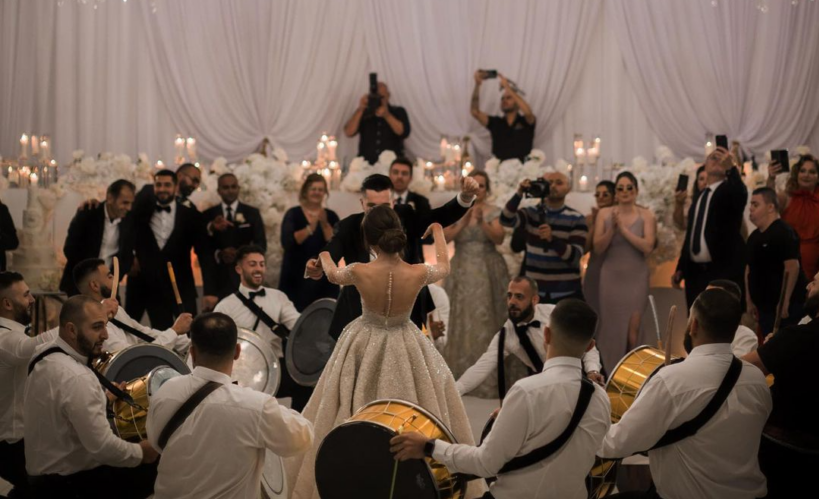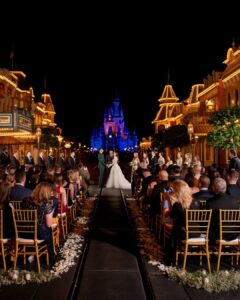Welcome to the magical world of Saudi Arabia, where you’ll witness a beautiful blend of culture, family values, and pure love. Weddings in Saudi Arabia are a true reflection of the Kingdom’s rich and vibrant traditions, where music, dance, and mouth-watering cuisine take center stage. Planning a Saudi Arabian wedding requires a deep understanding of the customs and cultural requirements, but the end result is a one-of-a-kind celebration that will stay with you forever. So, are you ready to immerse yourself in the mesmerizing tapestry of colors, flavors, and traditions that make up a Saudi Arabian wedding? Let’s get started!
Traditions, Customs, and Cultural Requirements
There are many traditions, customs, and cultural requirements associated with a Saudi Arabian wedding.
- Al-Khitbah: The formal proposal ceremony, also known as Al-Khitbah, is a significant event that marks the beginning of the engagement period. The groom’s family visits the bride’s home and officially asks for her hand in marriage. The bride’s family typically responds with acceptance or rejection, and negotiations may take place over the mahr, or dowry, which the groom must pay to the bride.
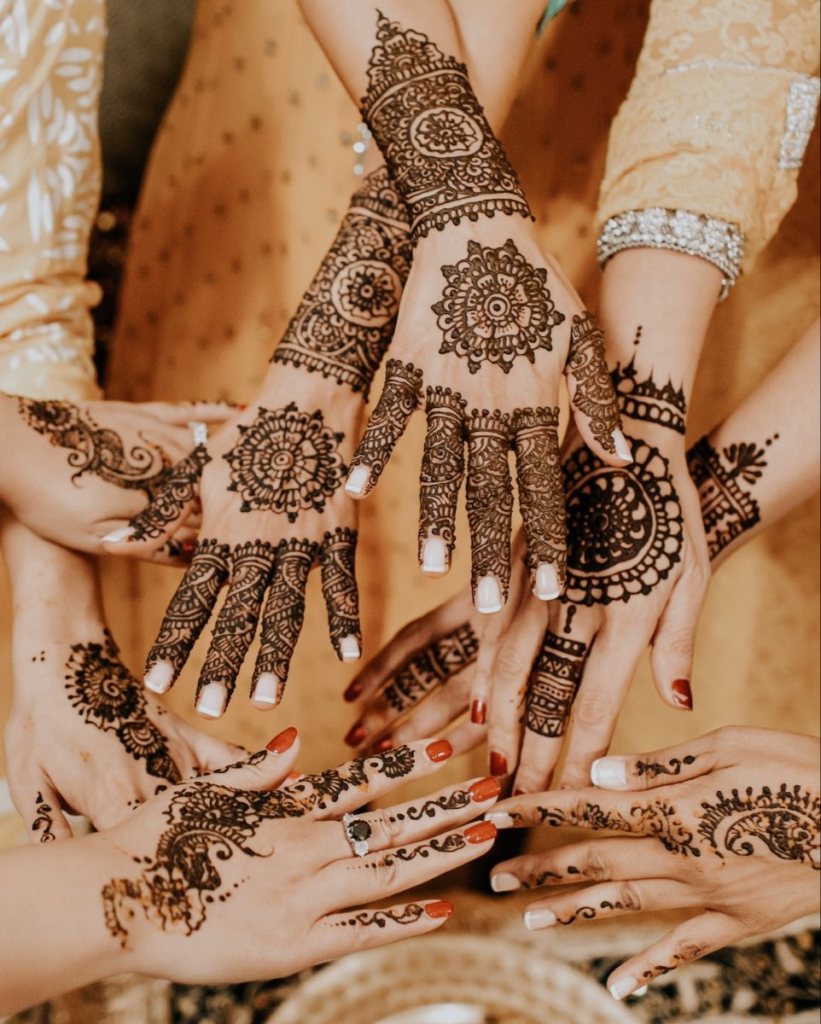
- Henna Night: Henna Night, or Laylat Al-Henna, is a pre-wedding ceremony where the bride’s hands and feet are adorned with intricate henna designs. The henna symbolizes good luck, happiness, and fertility, and it is a way for the bride to express her beauty and creativity. The bride’s female friends and family members gather together for the ceremony, which can be accompanied by traditional music and dancing.
- Men’s and Women’s Ceremonies: In traditional Saudi Arabian weddings, men and women celebrate separately, with the men gathering in one room and the women in another. This segregation is a reflection of the country’s strict gender roles and modesty requirements. The men’s ceremony is typically more boisterous and lively, with music, dancing, and traditional food. The women’s ceremony is more intimate, with the bride and her female family members and friends taking part in beauty rituals and sharing advice and support.
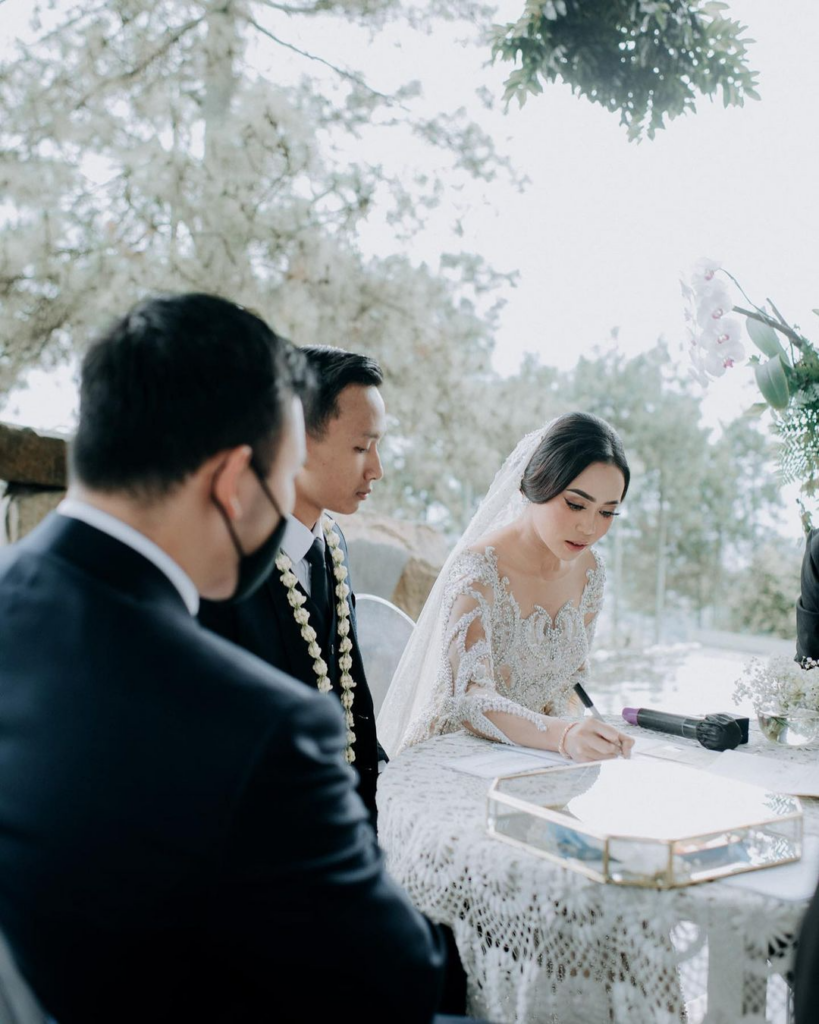
- The Mahr: The mahr is the dowry that the groom gives to the bride as a sign of commitment. It can be a sum of money, property, or other valuable assets, and it is considered a symbolic gesture of the groom’s love and respect for his bride. The mahr is typically negotiated between the groom and the bride’s family, and it is considered a binding contract between the two families.
- The Wedding Feast: The wedding feast is a lavish affair, with a wide variety of traditional Saudi Arabian dishes served to guests. The menu may include rice dishes, meat and poultry, bread, salads, and desserts, all of which are prepared with aromatic spices and rich flavors. The wedding feast is a symbol of hospitality and generosity, and it is a way for the couple to share their joy and happiness with their loved ones.
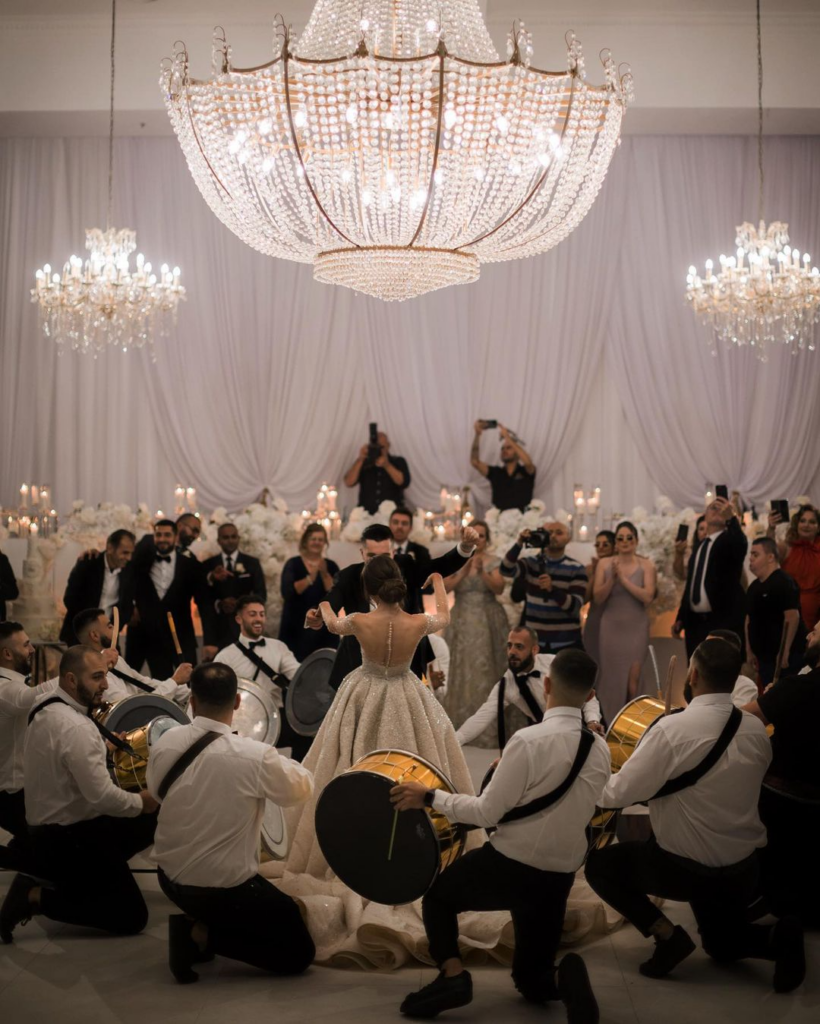
- Zaffa: Zaffa is a traditional wedding procession, where the groom and his family, accompanied by musicians and dancers, make their way to the bride’s house. The procession is led by a group of drummers, who set the beat for the dance and music. The groom and his family are dressed in traditional attire, and they carry swords and shields as a symbol of their strength and valor. The zaffa is a festive and lively event, and it is a way for the groom to show his love and respect for his bride.
- Ardah: Ardah is a traditional dance performed during the zaffa procession, where men dance with swords and shields. The dance is a symbol of courage and unity, and it reflects the country’s history of tribal warfare and strength. The men move in unison to the beat of the drums, and they chant traditional songs and poetry as they dance. The ardah is a way for the groom and his family to show their bravery and to honor their cultural heritage.
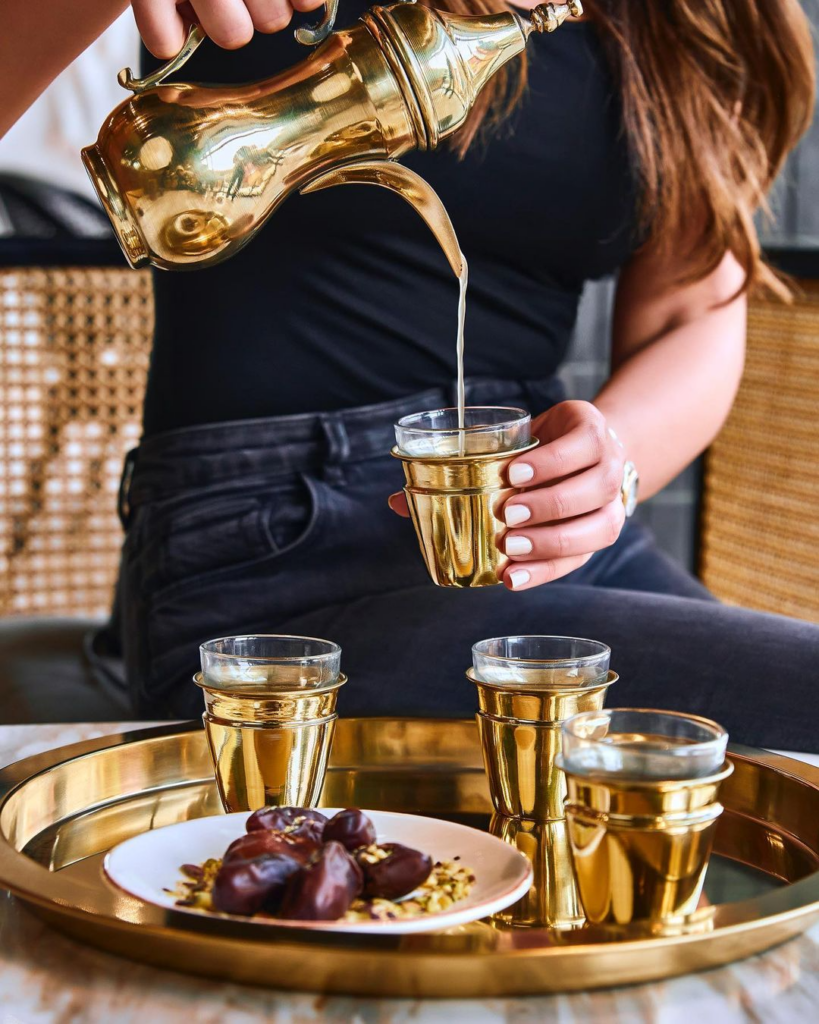
- Coffee and Dates: Coffee and dates are an integral part of Saudi Arabian hospitality and are served to guests throughout the wedding festivities. Coffee, known as Arabic coffee, is a strong, aromatic brew that is traditionally served in small cups with dates, a sweet fruit that symbolizes prosperity and hospitality. Serving coffee and dates is a way for the couple and their families to welcome and honor their guests.
- Zamzam Water: Zamzam water is a type of holy water that is considered sacred in Islam, and it is often served at Saudi Arabian weddings. The water is sourced from the Zamzam well in Mecca, which is believed to have been miraculously created by God to provide water for the prophet Abraham and his family. Serving Zamzam water is a way to bless the wedding and ask for God’s protection and guidance in the couple’s marriage.
- Takbir: Takbir is a traditional prayer that is recited during the wedding ceremony, and it is a way to praise God and ask for his blessings on the couple’s marriage. The prayer is led by an Imam, or a religious leader, and it is recited in Arabic, the language of the Quran. Takbir is an essential part of the wedding ceremony and is considered a sacred moment of the wedding.
Bride and Groom Ensemble
The bride typically wears a traditional thobe, a long, flowing dress, and a hijab, a headscarf. The groom may wear a thobe as well, or he may wear a Western-style suit. The bridal party may also wear traditional attire in complementary colors.
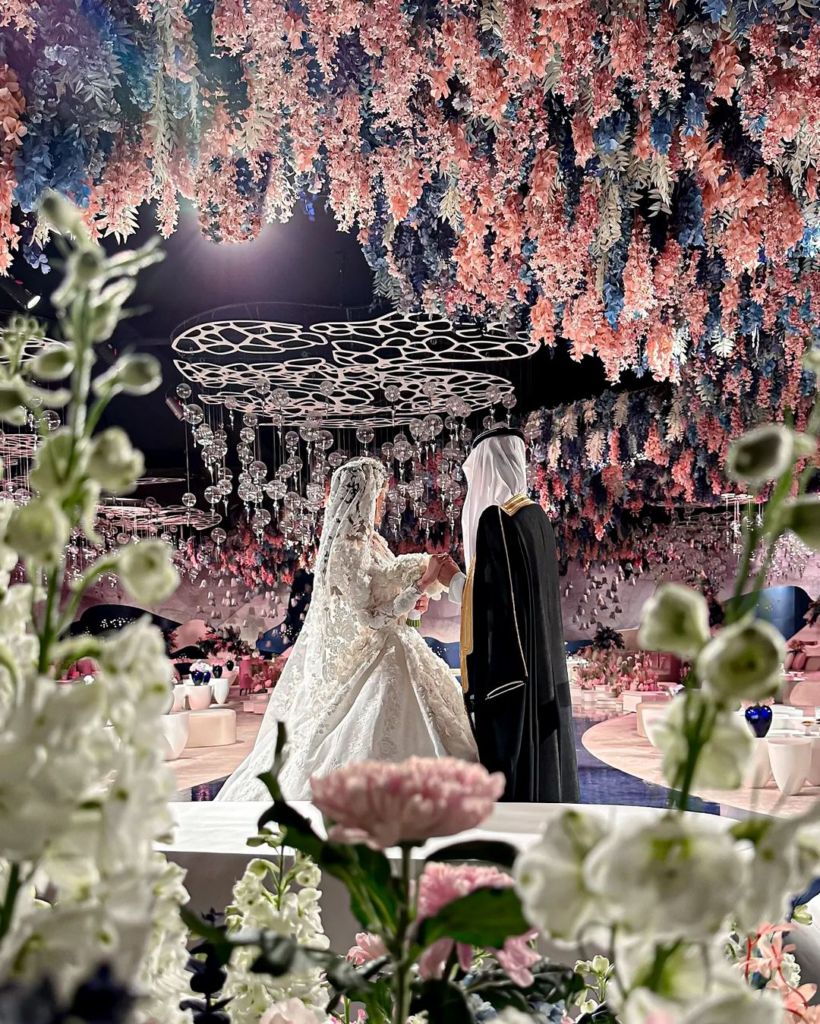
The bride wears a traditional wedding dress called a thobe or a sharara, which is often adorned with intricate embroidery and beading. The thobe is a long, flowing gown that is typically white or ivory in color, while the sharara is a two-piece outfit consisting of a long skirt and a short blouse. Both styles are considered elegant and graceful, and they reflect the bride’s beauty and purity.
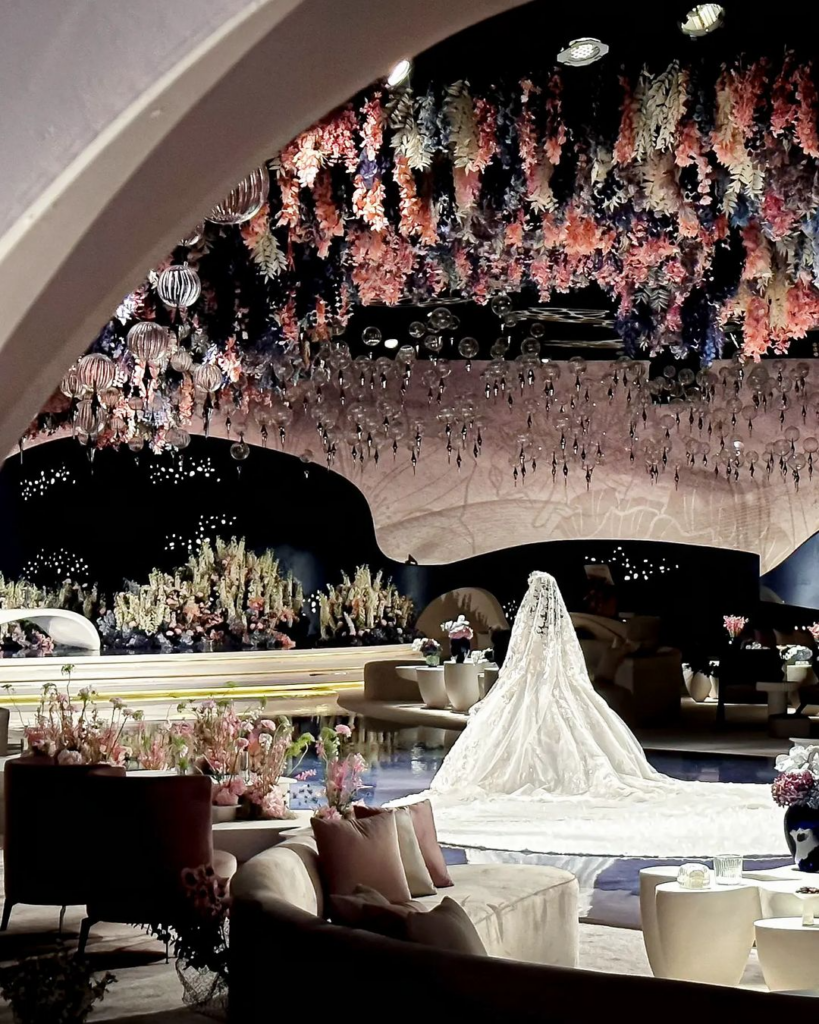
The groom typically wears a long white thobe robe, a headscarf called a ghutra, and a black agal rope to hold it in place. He may also wear a bisht cloak, embellished with gold or silver embroidery. The traditional curved dagger called jambiya is often worn as well. The attire is meant to reflect traditional Saudi Arabian dress and the groom’s cultural heritage.
Music and Dance
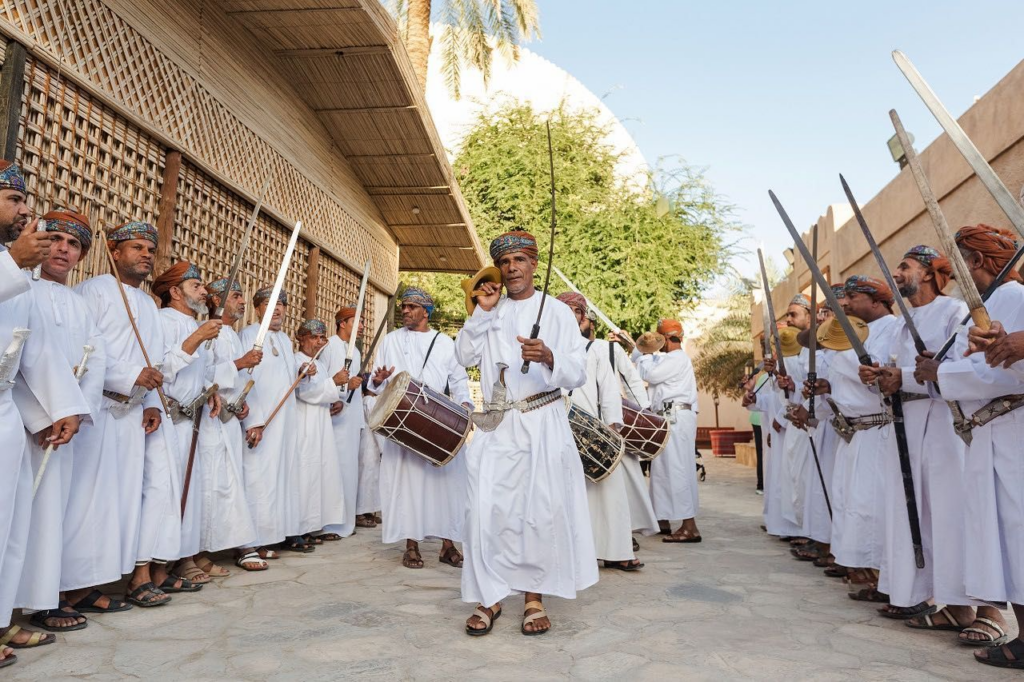
Music and dance are important parts of a Saudi Arabian wedding. The traditional dance is the Ardha, a sword dance that involves men dancing in a circle with swords. The bride and groom may also perform a special dance together.
Dabkeh is a traditional dance that is performed at Saudi Arabian weddings, and it is a way to celebrate joy and happiness. The dance is performed in a line, with the dancers holding hands and moving in unison to the beat of the music. Dabkeh is a lively and energetic dance that reflects the country’s rich cultural heritage and is a way for the couple and their families to express their happiness and excitement.
Food and Events
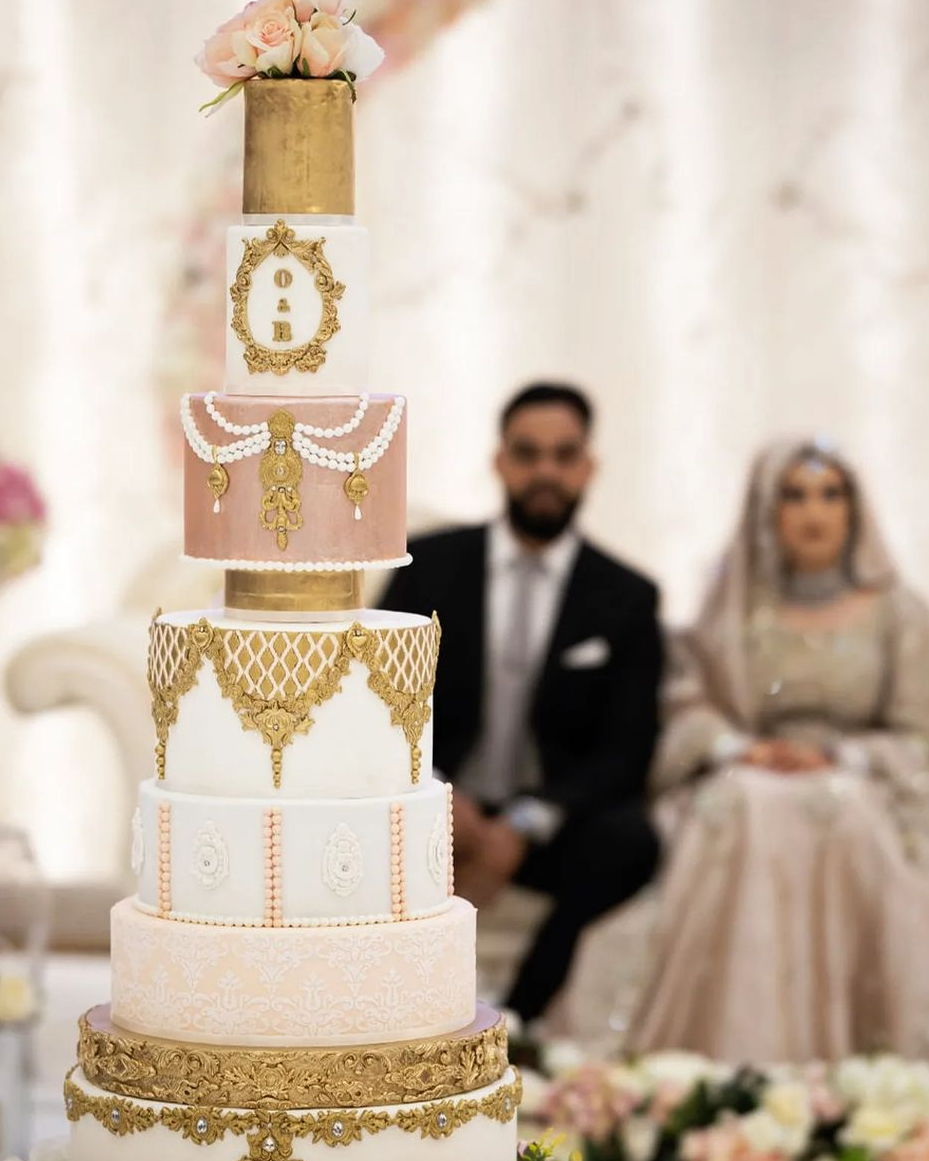
Food is a key part of a Saudi Arabian wedding, and there may be multiple meals served throughout the day. The wedding may also include events such as the cutting of the wedding cake, speeches by family members, and the presentation of gifts to the couple.
Wedding Venues in Riyadh and Jeddah
Riyadh and Jeddah are two of the most popular cities in Saudi Arabia for weddings, and for good reason. The cities offer a wide range of wedding venues, each with their own unique backdrops and settings. From luxurious hotels and resorts to beautiful beachfront locations, Riyadh and Jeddah have something to offer for every couple’s taste and style. Whether you’re looking for an elegant ballroom, a romantic garden, or a stunning sea view, these cities have a wedding venue to suit your needs.
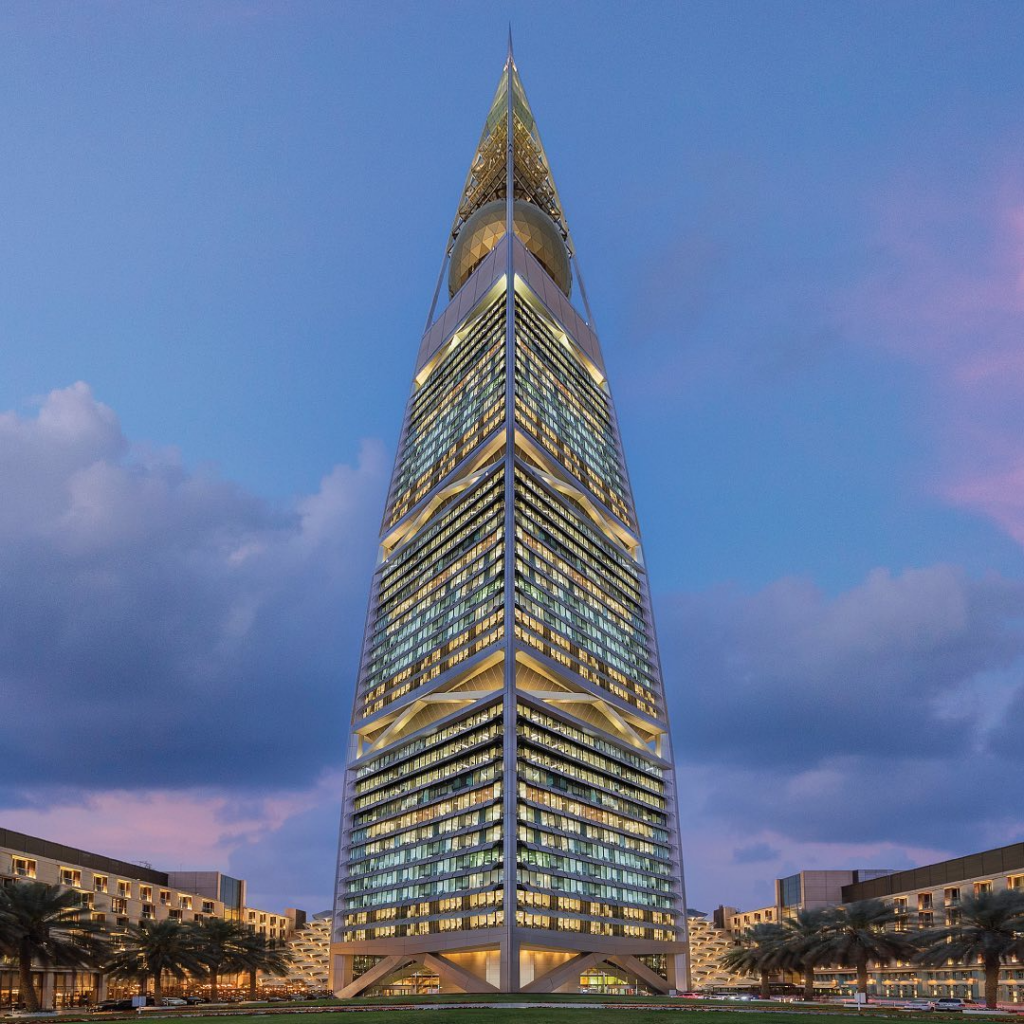
- Al Faisaliah Hotel, Riyadh: Al Faisaliah Hotel is an iconic landmark in Riyadh and is a popular choice for weddings. With its stunning architecture and elegant decor, the hotel offers several ballrooms and event spaces that can accommodate both intimate and grand celebrations.
- The Ritz-Carlton, Riyadh: Another luxurious hotel in Riyadh, The Ritz-Carlton is known for its exceptional service and attention to detail. The hotel offers several indoor and outdoor event spaces, including a grand ballroom and a stunning courtyard.
- Jeddah Hilton, Jeddah: Jeddah Hilton is a popular choice for weddings, thanks to its convenient location and range of event spaces. The hotel offers several ballrooms and function rooms that can be customized to suit any wedding theme or style.
- Rosewood Jeddah, Jeddah: Rosewood Jeddah is a luxury hotel that offers several stunning event spaces for weddings, including a grand ballroom and a rooftop terrace with panoramic views of the Red Sea. The hotel’s team of wedding planners and event coordinators can help couples create a truly memorable celebration.
Wedding Planners in This Region
Planning a wedding can be a daunting task, but with the help of a professional wedding planner, the process can be much more manageable and enjoyable. In the Saudi region, there are many talented wedding planners who specialize in creating beautiful and unforgettable weddings.
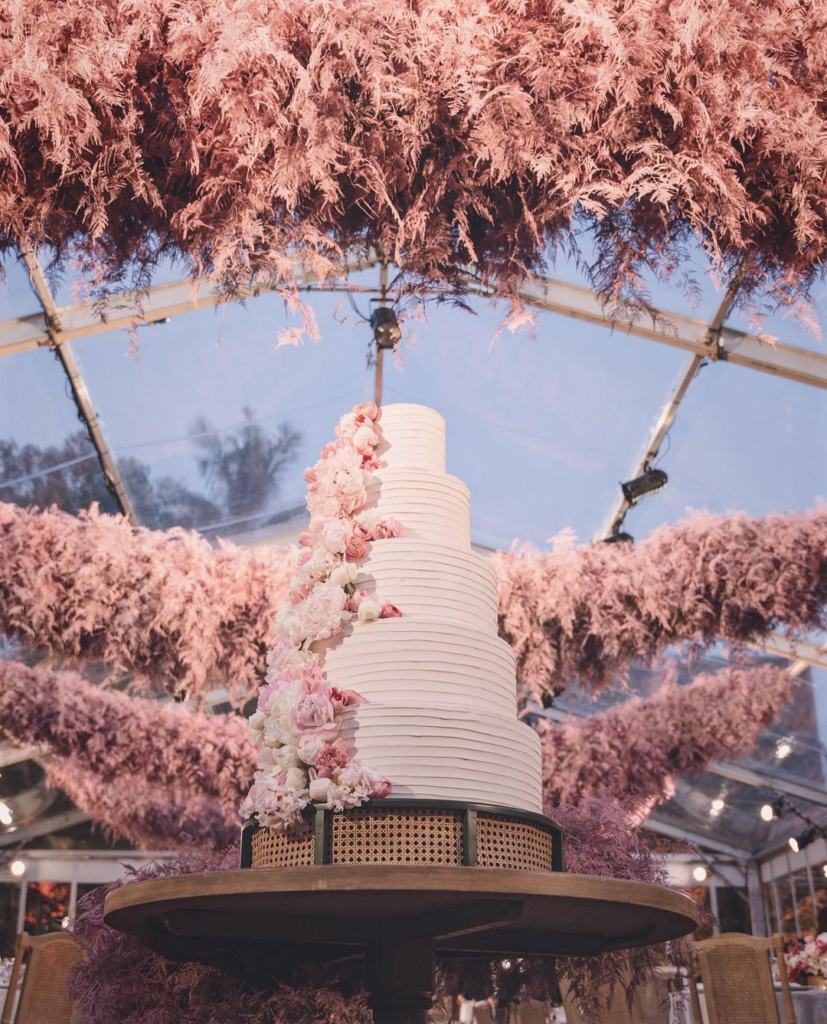
- Lace Events by Sarah Al Dabbagh: Lace Events is a full-service wedding planning and design company based in Riyadh, offering a range of services including event design, vendor management, and day-of coordination.
- Ghadeer Ashoor: Ghadeer Ashoor is a wedding planner and designer based in Jeddah, known for creating stunning events that are both elegant and unique.
- Nardeen Company: Nardeen Company is a full-service wedding planning and design company based in Riyadh, offering a range of services including event design, vendor management, and logistics coordination.
- Cerimonia: Cerimonia is a boutique event planning and design company based in Jeddah, known for creating bespoke events that are tailored to each couple’s style and vision.
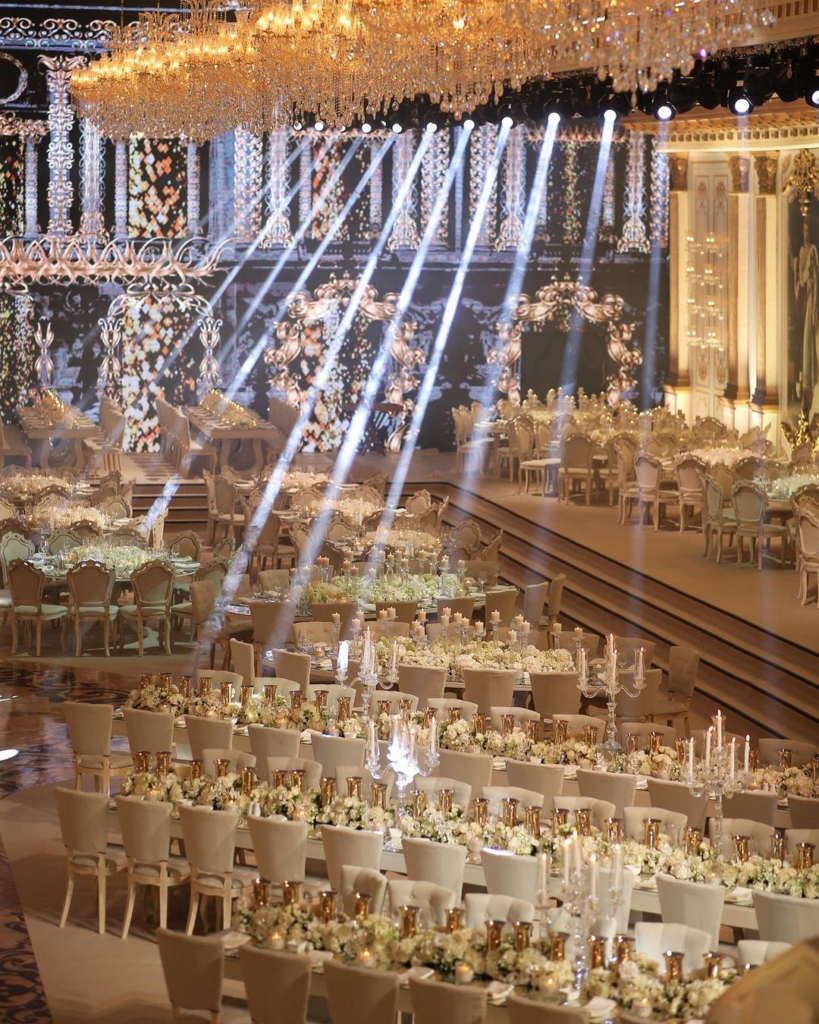
- Baz Events: Baz Events is a luxury event planning and design company based in Riyadh, offering a range of services including event design, vendor management, and logistics coordination.
- Xaya Events: Xaya Events is a wedding and event planning company based in Jeddah, offering a range of services including event design, vendor management, and day-of coordination.
- Opulent Events: Opulent Events is a full-service event planning and design company based in Riyadh, known for creating luxurious and unforgettable events.
- Amjad Yamani: Amjad Yamani is a wedding planner and designer based in Jeddah, known for creating stylish and unique events that reflect each couple’s personality and vision.
A Saudi Arabian wedding is a celebration of culture, family, and love. By honoring the customs and traditions of Saudi Arabia, you can create a meaningful and memorable event that reflects your heritage and celebrates your unique love story. From the mahr to the Ardha, a Saudi Arabian wedding is a joyous occasion that brings families and communities together.
READ MORE:

